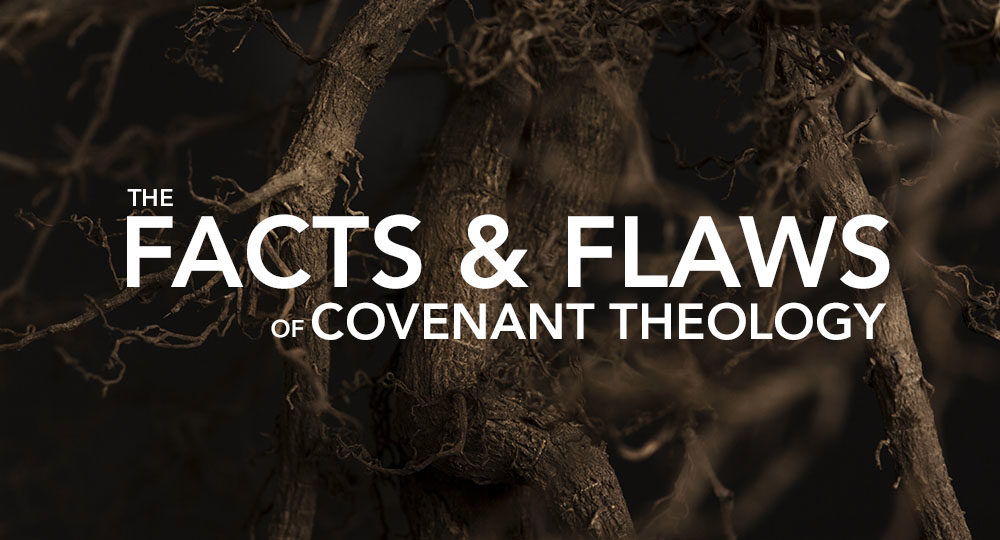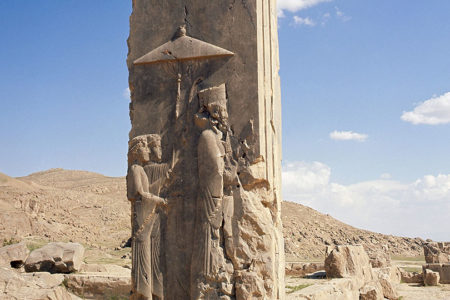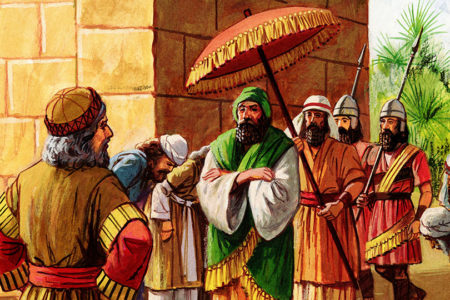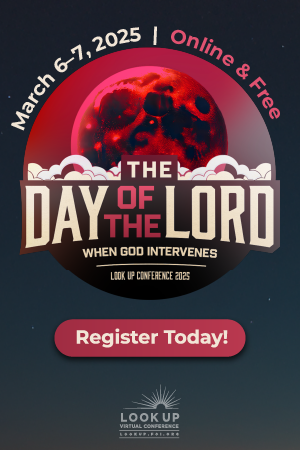The Facts and Flaws of Covenant Theology Part Three
If Replacement Theology is true, then certainly God has an opinion about it—one He states clearly and teaches visibly in Scripture. Conversely, if it is not plainly taught, then Replacement Theology must be the fictitious creation of men.
What It Maintains
Replacement Theology maintains that, because the Jewish people rejected Jesus Christ, God has replaced or superseded ethnic Israel with the church* and punished them by rescinding all of the covenant promises He gave them.
It also claims (1) the church began with Abraham in Genesis 12, (2) the church is merely a continuation of Old Testament Israel, (3) the church is true or “spiritual Israel,” and (4) true Israel in the Old Testament was comprised of Abraham’s spiritual, not physical, descendants.
Replacement theologians also claim we must first understand the New Testament before we can understand the Old. The New Testament, they say, teaches us how to interpret the Old Testament. This method enables them to redefine Israel to mean Abraham’s spiritual descendants only. However, interpreting Scripture this way ignores the progress of God’s revelation and implies that people who had only Old Testament revelation could not have understood it.
Replacement Theology also conveniently manages to uncouple God’s covenant promises from His covenant curses. The church inherits all of the promises to Israel, but the Jewish people (ethnic Israel) keep all of the covenant curses. This uncoupling is quite a feat.
Since the Replacement church sees itself as a continuation of Old Testament Israel, it applies portions of Old Testament Law to itself while ignoring important New Testament teachings.
Finally, Replacement Theology teaches there is no future for national Israel: God has thoroughly rejected Israel and no longer has a place for it in His plan for eternity apart from the salvation of individual Jewish people. They are no longer His Chosen People; nor is there a future 70th week of Daniel (see Daniel 9:24–27) or a future, literal, Millennial Kingdom of God on Earth.
Replacement Theology is the historical position of the Roman Catholic and Orthodox churches and the common position of the Reformed and Covenant churches. Unfortunately, it has fueled anti-Semitism for 1,800 years. It has been said that more anti-Semitic acts have been committed in the name of the church than by all other groups combined.
Christ’s Words
Since Israel did not reject Christ until the Gospels, we would expect Replacement Theology to be taught in the New Testament. Using a literal-historical-grammatical method of interpretation, we would expect to find:
• Clear, concise statements that God has rejected Israel.
• Definitive passages that teach that the church has replaced Israel.
• God’s declaration that He has excluded Israel from the Old Testament covenants.
• A total lack of New Testament verses that speak of Israel’s future in God’s plan.
Speaking to a Jewish audience, Jesus said, “Therefore I say to you, the kingdom of God will be taken from you and given to a nation bearing the fruits of it” (Mt. 21:43).
Replacement theologians say this passage teaches that Jesus said (1) God has permanently rejected national Israel, and (2) the “nation” to whom the Kingdom of God will be given is the church.
On the surface, this explanation seems reasonable. However, scrutiny shows otherwise. Throughout the first part of His ministry on Earth, Jesus preached, “Repent, for the kingdom is at hand!” He offered the restored Kingdom of God to Israel if the people repented of their sins and accepted Him as their Savior and Lord. But they would not.
Later Jesus lamented over Jerusalem, “who kills the prophets and stones those who are sent to her! You shall see Me no more till you say, ‘Blessed is He who comes in the name of the LORD!’” (23:37, 39). Although this passage teaches that Israel will be judged, it concludes by promising a future day when a new generation of national Israel will repent and accept Him as Messiah. If Matthew 21:43 taught that God had rejected Israel, then Jesus would not have taught later that a future Jewish nation will accept Him. Therefore, Matthew 21:43 cannot imply God has permanently rejected Israel as His people.
Furthermore, nowhere does Scripture define the church as a “nation.” Rather, it teaches that the church is composed of people from many nations. Christ’s use of nation in Matthew 21:43 refers to the future generation of Jewish people who will accept Him and bear the fruit of the restored Kingdom. Christ chose the word nation rather than generation because He knew the Jewish people would soon be scattered; and He wanted to note a future day when Israel would again be a nation, accept Him as Messiah, and usher in the restored Kingdom of God.
Far from teaching Replacement Theology, Jesus emphasized that, because the Jewish generation alive during His First Coming refused His offer of the restored Kingdom, God would take the Kingdom from them and give it to a future Jewish nation that will accept Him.
Paul’s Words
One of the most often-quoted passages in defense of Replacement Theology is Galatians 6:16: “And as many as walk according to this rule, peace and mercy be upon them, and upon the Israel of God,” written by the apostle Paul. Replacement theologians say Israel of God refers to the church.
Their argument revolves around the Greek word kai that precedes the words upon the Israel of God. Kai is most commonly translated “and”; but they say kai is an explicative case (what follows explains what came before) and, therefore, should be translated “even.” This change makes Israel of God refer to as many as walk according to this rule, meaning Christians. They also say Paul taught in Galatians the unity of all ethnic believer groups. Therefore, the words Israel of God refer to all believers, that is, the church.
However, the explicative case of kai is extremely uncommon usage and not likely supported by context or grammar. The more commonly used and to connect the words Israel of God with the first half of the verse makes more sense.
In Galatians, Paul defended salvation by grace through faith alone. He spoke against the Judaizers who taught circumcision was required for salvation. They added works (circumcision) to faith. When Paul said, “as many as walk according to this rule,” he spoke of those who walked by faith in Christ alone. His use of Israel of God contrasts Jewish people who believed in Christ alone with the Judaizers who taught one must have faith plus works to be saved.
In all other Pauline passages, the word Israel refers to national or ethnic Israel. It is highly unlikely he would use Israel here to refer to the body of all believers. Paul prayed in Galatians 6:16 that God would bless all who put their faith in Christ alone for salvation and that He would especially bless the Jewish believers who were distinct from the Judaizers. This verse does not say the church has replaced Israel. Even if one accepts the Replacement explanation, the most it says is that Gentiles are included with Israel.
Replacement theologians also use Galatians 3:7 and 29 to bolster their position: “Therefore know that only those who are of faith are sons of Abraham” (v. 7). “And if you are Christ’s, then you are Abraham’s seed, and heirs according to the promise” (v. 29).
They maintain the words sons of Abraham and Abraham’s seed imply the church has become true Israel, concluding that all believers are spiritual Jews. They tell us Abraham’s seed means believers are related to Christ, whom they say is the true seed of Abraham; thus the church is true Israel.
However, it is possible to be Abraham’s “son” or “seed” but not be Jewish. Ishmael was Abraham’s son, but he was not Jewish. In Romans 4:11– 12 Paul taught that Abraham is the father of both the uncircumcised (Gentiles) and circumcised (Jewish). Some of Abraham’s descendants are Jewish, and others are not.
Abraham himself was not Jewish. He was a Gentile from Ur of the Chaldeans. If he had been Jewish, then all of his descendants would be Jewish. Yet only the descendants of Abraham, Isaac, and Jacob are Jewish. It wasn’t until Jacob that God bestowed the title of Israel, after Jacob wrestled with God all night (Gen. 32:24–30).
Galatians 3:7 and 29 do not say Israel has been replaced; they merely teach that people (Jewish or Gentile) who put their faith in Christ become partakers of the spiritual promises God made to Abraham. Paul affirmed this fact in 3:28 when He said, “There is neither Jew nor Greek, . . . for you are all one in Christ Jesus.”
* Unless otherwise specified, all references to the church refer to the church in its broadest sense, including Roman Catholic, Orthodox, Protestant, and evangelical.








I seem to be missing something here – no arguments with the article proving that Israel has not been replaced; but the title of the article is “flaws with Covenant Theology.” Could you please provide some explanation to demonstrate that the two are related? Some of the sources I have looked at so far contends that they are in fact different doctrines, some that covenant theology engenders replacement theology – but neither side have done anything to argue their position. Answers, please?
While I enjoyed this write-up very much and it was thoughtfully and professionally done, I don’t understand what you mean at the end when you say “all references to the church refer to the church in its broadest sense, including Roman Catholic, Orthodox, Protestant, and evangelical”. I would think that the statement would more correctly read, “all references to the CHURCH refers to that body of believers – those who have put their faith and trust in Christ, whatever their denomination is…” Is that not a more accurate description sir?